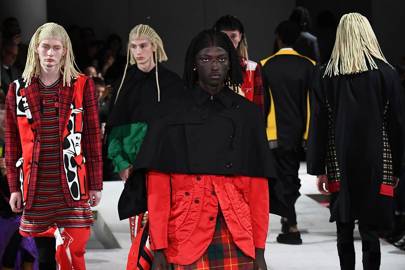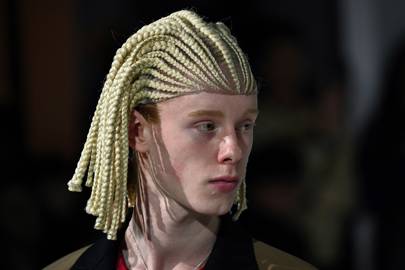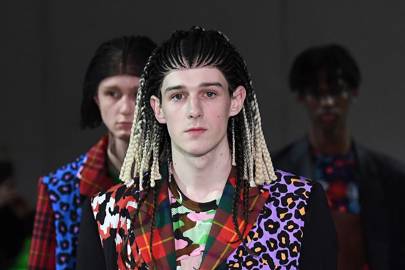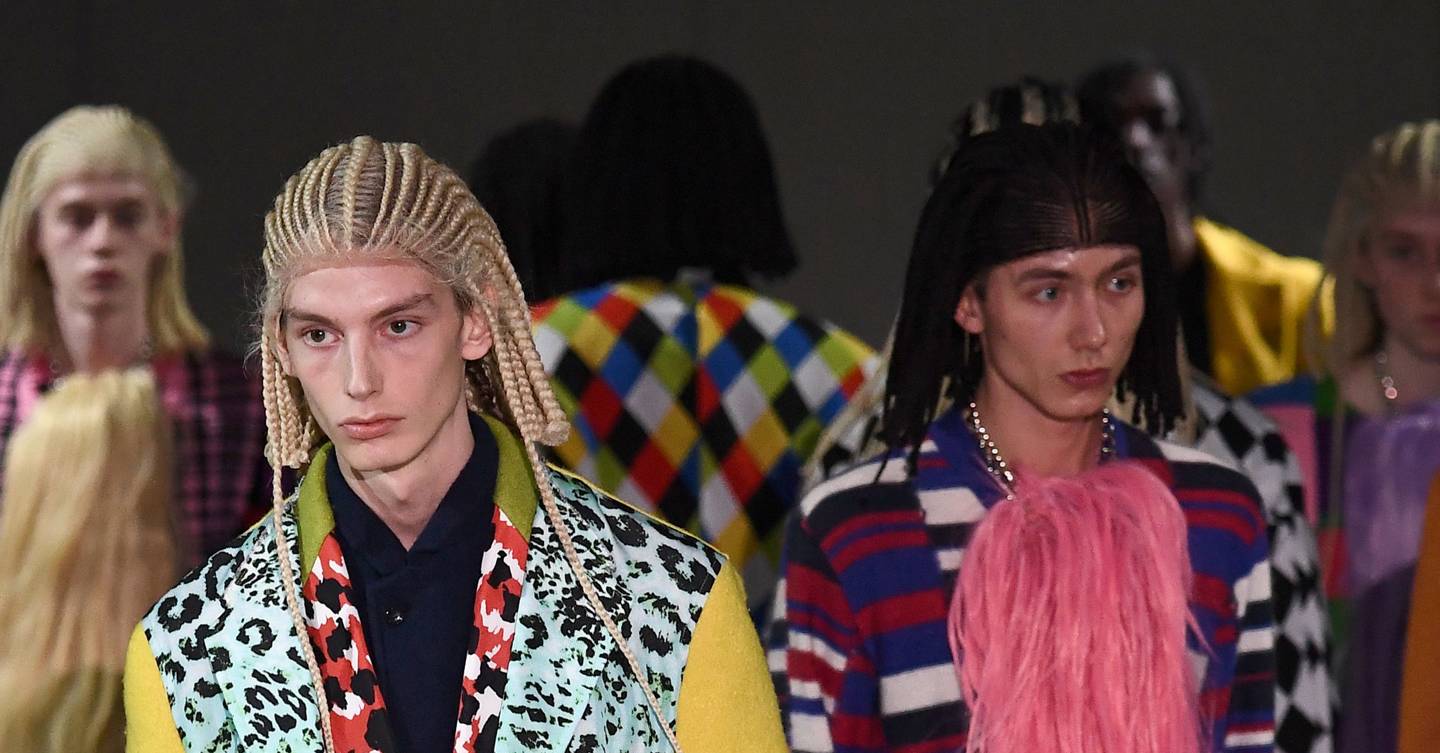Fashion brand Comme des Garçons is facing backlash after showing an A/W 2020 collection at Men’s Paris Fashion Week that featured a line-up of predominantly white models wearing cornrowed, lace-front wigs.
The faux pas is only the latest in a long history of missteps which have seen the fashion industry come repeatedly under fire for its perpetual lack of inclusivity and tokenistic attempts at representation.
Comme des Garçons is no stranger to controversy. Despite appropriating a traditionally and culturally black hairstyle for its beauty look this season, the Japanese brand has earned a reputation for never hiring black models – evidenced by a 24-year gap between 1994 and 2018 in which there was an exclusion of said models from its runways.
In February 2018, Heroine’s Martin Lerme compiled a damning report that produced evidence of what he describes as the brand’s “heavy preference for Eastern European women with especially white skin.”

Getty Images
Delving into Commes des Garcons’ catwalk archives for the piece, Why Won’t Comme des Garçons Hire Black Models?, the journalist found that “After reviewing the 54 runway shows (excluding the as yet unavailable Fall 1991 season) on Vogue, which includes a total of 2,533 looks, I was only able to identify 5 black models—a total of 32 appearances comprising 1.26 percent of the total runway exits—over the entire covered time span.”
The fashion industry’s storied history with cultural insensitivity and appropriation has too many recent and highly publicised indictments for a brand of this magnitude to make such a public misstep.
Julien d’Ys, the show’s hairstylist has since shared a sketch on his Instagram account which suggests the wigs were supposed to emulate the coiffure of an Egyptian Pharaoh. In a post that followed, d’Ys states the look was inspired by an “Egyptian prince,” and apologises saying, “Never was it my intention to hurt or offend anyone, ever. If I did I deeply apologize.”

Getty Images
A day after the show, the brand shared a statement with fashion publication Dazed stating, “The inspiration for the headpieces for Comme des Garçons menswear FW’20 show was the look of an Egyptian prince. It was never ever our intention to disrespect or hurt anyone – we deeply and sincerely apologise for any offense it has caused.”
Despite the statements, Twitter and Instagram are still abuzz with critiques of the show. With one user, @onlykuper, pointing out: “Adding insult to injury, these faux braids are ill-fitted, proving it is an accessory not appreciation.” And another user, @kelle_S6, asked: “If they were inspired by Egyptians, then why not use Egyptian or Arabic models then [sic]?”

Getty Images
Although Julien d’Y’s Instagram posts are littered with supportive messages from high-profile industry insiders such as Carine Roitfeld and Marc Jacobs, for many, this misstep is just another reminder of the fashion world’s tendency to ‘borrow’ from blackness without permission, credit or respect.
